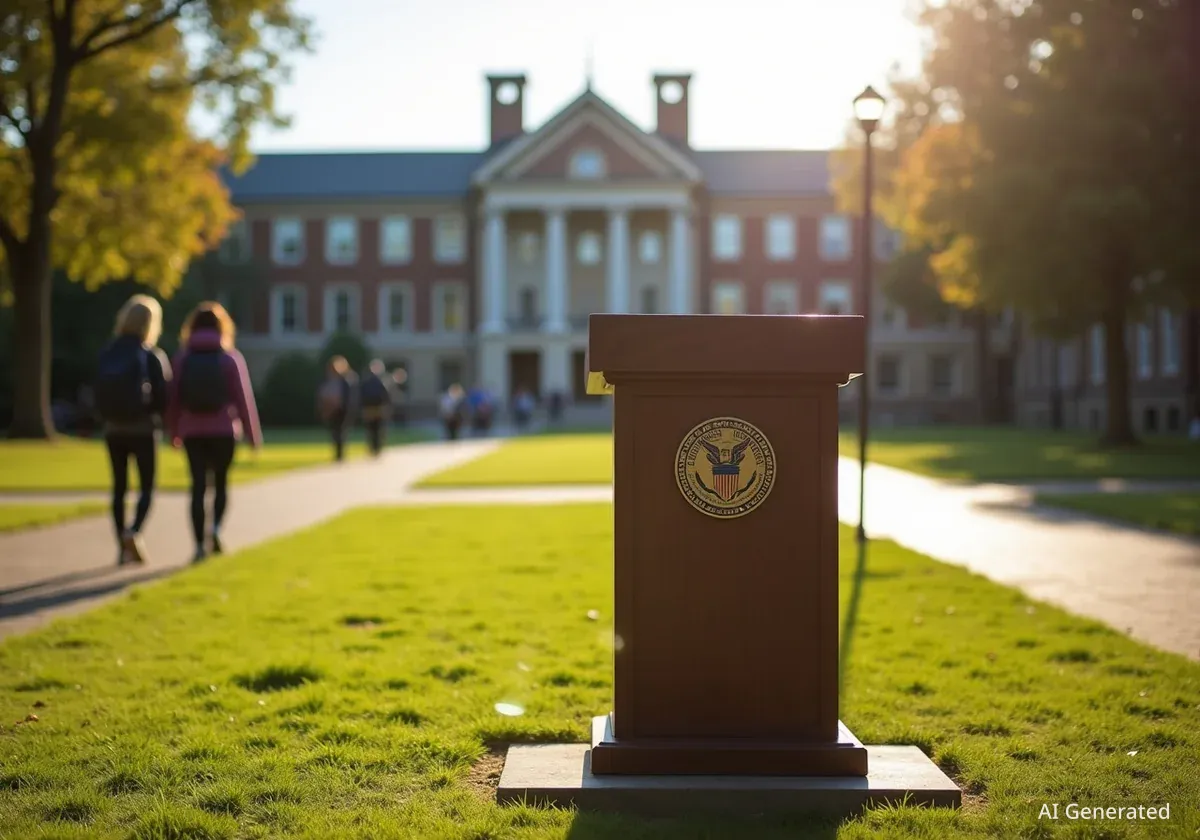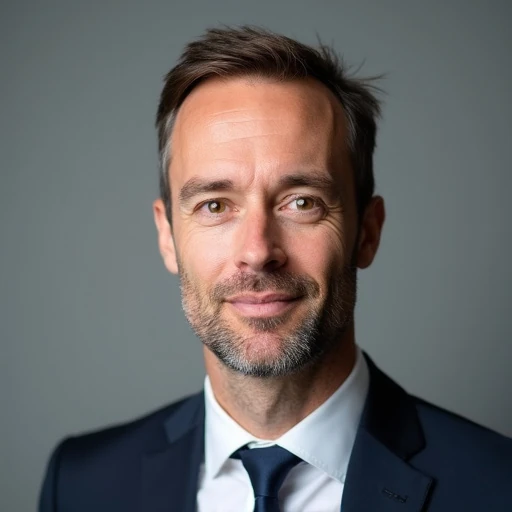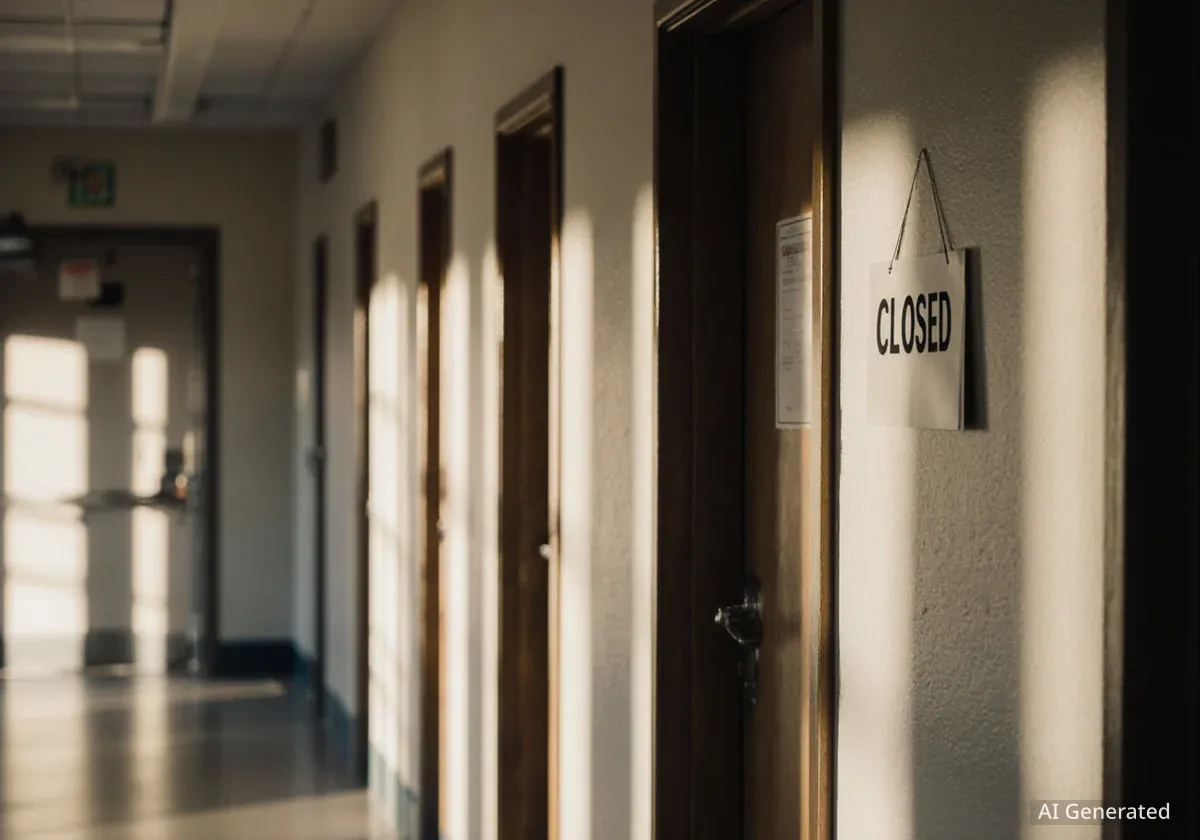New College of Florida has publicly announced its intention to be the first university to sign a proposed higher education compact from the Trump administration. The move aligns with the institution's significant conservative transformation over the past two years and places it in direct contrast with other universities that have rejected the proposal.
In a formal news release, college officials stated that the institution's current policies are already in harmony with the compact's principles, citing recent changes to diversity programs and admissions practices as evidence of their commitment.
Key Takeaways
- New College of Florida (NCF) has expressed its desire to be the first signatory of the Trump administration's proposed higher education compact.
- NCF President Richard Corcoran stated the college has been implementing the compact's ideals for the last two and a half years.
- The college highlights its elimination of diversity, equity, and inclusion (DEI) initiatives and a focus on merit-based admissions.
- The announcement follows a period of conservative overhaul at NCF initiated by appointees of Florida Governor Ron DeSantis.
- At least 11 other universities have already rejected the proposed compact, citing concerns over institutional independence.
A Proactive Stance on a Controversial Plan
Officials at New College of Florida are positioning the institution at the forefront of a national debate on higher education reform. The college's leadership has signaled its readiness to formally adopt the Trump administration’s compact, a document that outlines a series of policy changes for participating universities.
The compact reportedly touches on several key areas, including free speech, admissions policies, and the role of diversity, equity, and inclusion (DEI) programs on campus. New College leaders assert they are not waiting for a formal invitation but are actively pursuing the agreement.
"New College of Florida is committed to the ideals present within this compact, and we have already been instituting them for the past two and a half years," NCF President Richard Corcoran said in a statement. "We believe a student’s success comes from their character and their merit, not their race, gender, or sexual orientation, and we would be honored to sign the Trump administration’s compact."
This eagerness is further emphasized by Jamie Miller, the college's vice president of communications and chief marketing officer. "When the president asks, we’ll be first in line," Miller stated, confirming the institution's proactive stance.
The Broader Context: A National Divide
The proposed compact has created a clear dividing line in American higher education. While New College is embracing the plan, at least 11 other universities have publicly rejected it. Many higher education leaders have expressed concerns that the compact threatens institutional autonomy and academic freedom by imposing a standardized set of policies from the federal level.
The Transformation of New College
The college's current position is the result of a significant and rapid transformation. More than two years ago, Florida Governor Ron DeSantis appointed six new conservative members to the New College Board of Trustees, initiating a comprehensive overhaul of the public liberal arts college.
This new leadership has implemented a series of sweeping changes intended to reshape the institution's culture and curriculum. These actions have been both praised by supporters as necessary reforms and criticized by opponents as a politically motivated takeover.
Key Changes Implemented at NCF
- Elimination of DEI: The college has been a leader in dismantling DEI offices and programs, a move that aligns with a central theme of the proposed compact.
- Curriculum Adjustments: The gender studies program was cut, and other academic shifts have been made to reflect the new leadership's vision.
- Admissions Focus: Officials have emphasized a move away from what they term "discrimination in admissions" toward a system they describe as purely merit-based.
- Library Curation: Reports indicate that materials related to LGBTQ+ topics were removed from the campus library as part of the institutional shift.
- New Leadership: The college hired multiple figures with backgrounds in conservative politics to fill key administrative roles.
These actions, according to President Corcoran, demonstrate that New College is already living up to the principles outlined in the administration's compact, making the decision to sign a natural next step.
By the Numbers: A Shift in Governance
The overhaul at New College began in early 2023 with the appointment of six new conservative trustees by Governor DeSantis. This move fundamentally altered the balance of power on the college's governing board and paved the way for the subsequent changes.
Understanding the Proposed Compact
Details about the Trump administration's higher education compact remain partially under wraps, but its core objectives are becoming clearer. The plan was initially circulated to nine universities for feedback, and a revised draft is reportedly expected to be released next month.
The document is understood to require signatory institutions to make binding commitments in several policy areas. While the full text is not public, the focus appears to be on principles championed by conservative education reformers.
Potential Mandates of the Compact
- Free Speech Protections: Institutions would likely need to adopt and enforce strong policies protecting free expression on campus.
- DEI Program Restrictions: The compact is expected to require the elimination or significant scaling back of DEI initiatives.
- Admissions Standards: A commitment to merit-only admissions, potentially banning affirmative action and related practices, is anticipated.
- Cost Controls: The agreement may include provisions requiring universities to keep tuition and other costs low for students.
A significant aspect of the proposal involves enforcement. Reports suggest that universities failing to adhere to the terms of the compact could face steep financial consequences, although the exact nature of these penalties has not been detailed. It is also unclear what benefits, financial or otherwise, universities would receive for signing on.
An Uncertain Path Forward
Despite New College's enthusiasm, the process for joining the compact remains undefined. The administration has not yet specified how universities can formally sign the agreement or when the process will begin. President Trump has used social media to invite any interested college to join, expanding the scope beyond the initial nine institutions contacted for feedback.
The White House has not yet responded to requests for comment on the timeline or the next steps for institutions like New College that are eager to participate.
As the landscape of higher education policy continues to shift, New College of Florida has firmly planted its flag. By volunteering to be the first to sign the compact, the institution is not just adopting a new set of rules but is also making a powerful statement about its identity and its vision for the future of American universities.





